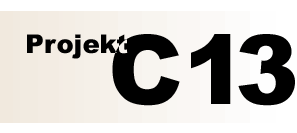
 |
|
|
Project Leaders:
|
Researcher:
Research Area:
|
Informations:
|
||||||||||||
This project wants to analyse the linkages between global discourses and local interpretations and social practices relating to topics such as land reform, democratisation and nature conservation in southern Africa. Hereby it seeks to throw light on the underlying dynamics and the changing na-ture of power and authority over resources in arid lands. It will pay attention to emergent con-flicts and cooperation between global agendas and local agency, look at mutual influences and take historical and contemporary dynamics into account. It wants to examine the localisation of global concepts and focuses on detailed case studies on the local level. The inherent conflicts in discourses as well as in practices will be explored as constraints and opportunities to achieve a consolidation of civil society and sustainable rural livelihoods.
The establishment of settler colonies in southern Africa in colonial times resulted in a highly skewed distribution of land and a profound division of communal versus freehold land-ownership. For centuries, the great majority of people suffered oppression, discrimination and forced removals through colonial and apartheid legislations. The removal and resettlement of people created space and labour-force for white settler dominated freehold farmland. A specific approach to nature conservation built upon the establishment of uninhabited protected areas led to further land dispossessions. These processes resulted in the emergence of highly fragmented so-cieties in southern Africa. Rural areas under communal land tenure, legally framed as reserves, homelands or tribal grazing lands, became overpopulated, poverty stricken and environmentally degraded. With the advent of independence and changes in political rule, governments have started giving priority to a more equal distribution of lands and reconsidered conservation prac-tices. Hence, the big challenge for governments in southern Africa today is to achieve an equita-ble access to land and resources and to provide secure tenure rights, while at the same time meeting goals of sustainable land use and democratisation – in short to integrate socio-economic development and conservation. These efforts are embedded in global discourses on human rights, civil society, justice and the preservation of biodiversity as global public goods.
Concepts like ‘sustainability’ will be explored and discourses on environmental management will be analysed on various levels from the local to the global. We will further examine how dis-courses translate into policies and local practices and how ideas and perceptions flow between the different levels. The internationalisation of environmentalism creates transnational social spaces in which local actors have to position themselves.
It is intended to conduct in-depth, comparative studies on the local level,
applying qualitative and quantitative social science methodology and paying
attention to an historical perspective. Dis-course analysis will focus on
linkages between different levels of presentation and decision making (local,
national,
and international), agents and institutions engaged in these processes, the
communicative networks they develop and the concepts and knowledge they construct.
In a broader interdisciplinary perspective, data on the dynamics of natural
resources will be adapted from previous experiences and current projects
in ACACIA and PLAAS as well as in collabo-rating research programmes.
| [Main]
[Project C1] [Project
C8] [Project C10] [Project
C11] [Project C13]
|